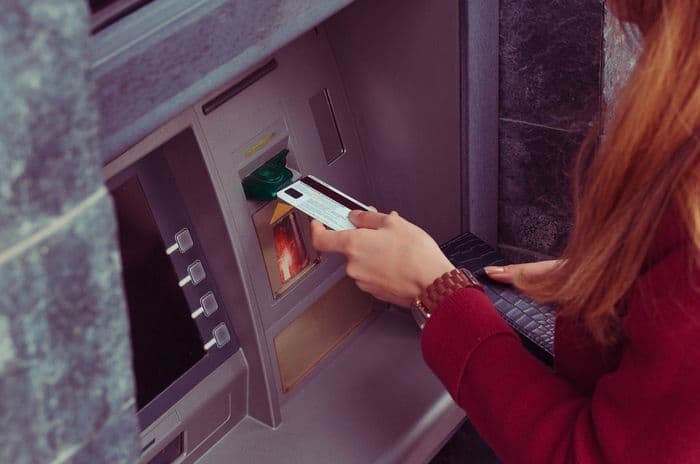Home > Money > News > Cash machine disappearances put vulnerable at risk says MP
Cash machine disappearances put vulnerable at risk says MP
Chair of Treasury Select Committee voiced fresh concern over disappearance of free-to-use ATMs.
Access to free-to-use cash machines is declining year-on-year due to the closure of bank branches, with rural locations especially at risk.
Giving evidence to the Committee, the Chair of the Payment Systems Regulator (PSR) queried whether the infrastructure of cash provision in the UK should change.
That would shift free-to-use ATMs from being a commercial service to being a universal one.

Access to cash under scrutiny
While the use of cash in transactions has halved in ten years 63% to 34%, many people are still reliant on accessing cash via ATMs.
The evidence given by the Chair of the PSR reiterates that there is a need to guarantee access to free-to-use ATMs.
If there is no commercially viable option for running a cash machine in a certain location, he suggested, then there may be scope to implement a universal service obligation.
This is something the PSR will continue to look at.
Currently, uneconomic cash machines are subsided by an "interchange" fee managed by Link which will be increased in April in a bid to persuade operators of machines in remote areas to keep them free-to-use.
However, there have been disagreements in the past between the PSR and Link about the long-term future of cash machines following the closure of some "protected" machines.
Nicky Morgan, Chair of the Treasury Select Committee, reflected on the evidence given at the session by saying that access to cash is on the "precipice of collapsing" and that the Government must act soon.
She recommended coordination between the Government and regulators to ensure that the issue is addressed before a tipping point is reached.
Report due in 2019
The interim Access to Cash Review which was published in 2018 ahead of a full report in 2019, found that 25 million people require regular access to cash.
Within this figure, only 2.2 million use cash for all their day-to-day transactions, but more of these users are on a lower income with 15% earning under £10,000 a year.
97% of people in the UK carry some cash with them, with 67% citing the desire to pay for small things with cash as the main reason.
55% stated that it provided peace of mind in case they can't pay with card, which is a tangible fear given the payment outages that have made the news in recent years.
The interim report also shows that the decline of ATM use is more prevalent in London and the South East, while Northern Ireland, Wales and Scotland were the locations where ATM use has declined least.
Financial inclusion a priority
Access to cash via free-to-use cash machines is often examined through the prism of financial exclusion.
Those who are financially excluded might be on a low income, have a poor credit record or be elderly, disabled or a migrant.
Back in 2013, the Payments Council highlighted that access to ATMs played a big part in financial exclusion.
While some of the issues raised six years ago have been addressed, access to ATMs remains a critical point.
The interim Access to Cash report highlighted that a move towards a cashless society could have severe consequences for some of the most vulnerable.
For instance, it could lead to a loss of independence for older people and those with disabilities, as well as those at risk of exploitation.
In addition, the report fears that those on lower incomes could struggle further with the "poverty premium", where customers pay more because they can't go elsewhere.
They suggest that if access to cash is reduced, vulnerable people could lose access to locations which might be more budget-friendly.
Read more about financial exclusion and its associated problems here.
Get insider tips and the latest offers in our newsletter
Get insider tips and the latest offers in our newsletter

We are independent of all of the products and services we compare.

We order our comparison tables by price or feature and never by referral revenue.

We donate at least 5% of our profits to charity, and we have a climate positive workforce.
Latest News

26 October 2022
Cost of living showing worrying trends in affordability
24 August 2022
Home insurance premiums fall in latest ABI figures
29 June 2022
APP fraud and mobile banking fraud increased in 2021

